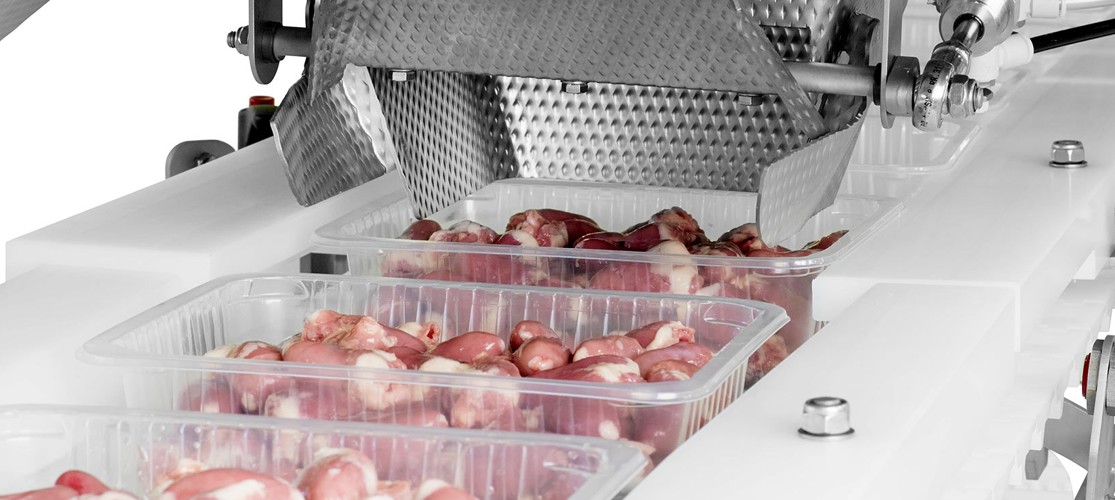A couple of years ago, South African poultry company Astral Foods was already thinking about automating giblet packing, as this part of the process needed many operators. At that time, Carsten Gonge, Marel batching product specialist, suggested automating this process by using a multihead weigher set-up. However, timing was not quite right for such a change. However, over time, as labor issues in South Africa became more problematic, Astral decided to switch to automated giblet packing using multihead weighers in its Festive and Goldi plants.
Less dependent of labor
Frans van Heerden, COO at Astral Operations Limited, says, “Running a double shift in each plant, we could save 150 to 200 people, simply by installing three multihead weighers in the line. To be honest, in the current circumstances, this was the main reason for us to opt for automated packing, even without looking for additional profit. It’s just that we want to be less dependent on manual labor. That being said, the reduction in giveaway achieved by the Marel multihead weighers is a bonus.”
Small products, small batches
Sander de Bruijn, regional sales manager Marel Poultry, talks about the configuration selected by Astral, “The Marel multihead weigher MHW Fresh is ideal for small products and small batches, just what is needed in giblet processing. We chose to install 14 head, 2 liter, screw-driven machines, which are compact solutions that fit into a small footprint where limited height is available. This equipment fits nicely in the evisceration department, where the ceiling is not usually as high, compared to that of the cut-up department.” Both Astral plants, Goldi as well as Festive, have exactly the same multihead weigher configuration.
Peri-peri
The first multihead weigher MHW Fresh is installed at the end of the liver harvesting line. The liver is a rather messy, wet, sticky product, which needs a dedicated machine with hoppers for 250 and 500 g [8 oz to 1 lb] batches packed into small plastic tubs. Fixed-weight batched livers are packed fresh and sold to local market operators. In South Africa, the chicken liver is a very common consumer product; you can buy it in all restaurants as an appetizer dish. Combined with sweet peri-peri sauce, this is quite a tasty dish.
Hearts and gizzards
The input for the second MHW Fresh consists of hearts and gizzards. Both product types are kept separate with either hearts or gizzards being processed. As both product types are relatively clean, they can be processed one after the other in the same machine without any need for adjustments. Goldi and Festive pack their hearts and gizzards in fixed-weight bags of 500 or 1,000 grams [1.1 lb or 2.2 lb] and sell these products to supermarkets in South Africa.
Soup packs
The job of the third multihead weigher, located in the cut-up department, is to pack what is referred to as soup packs. These are one kilo [2.2 lb] bags containing all kinds of by-products such as the skin from carcasses, upper and lower back pieces, wing tips, parson’s noses, broken drumsticks, and wings with bruises. The soup pack is a popular, affordable product in South Africa. It is considered an important ingredient in many of the local dishes. Soup packs are available at supermarkets all over the country. Which chicken parts end up in Festive and Goldi soup packs depends entirely on what is available in the processing plant at that moment. Although these byproducts may differ greatly in size and weight, they are all mixed before entering the multihead weigher. Here they are weighed and batched to be packed into bags. The Marel multihead weigher does a great job at producing fixed-weight packs and, for Goldi and Festive, replaces no fewer than 20 workers per shift.
